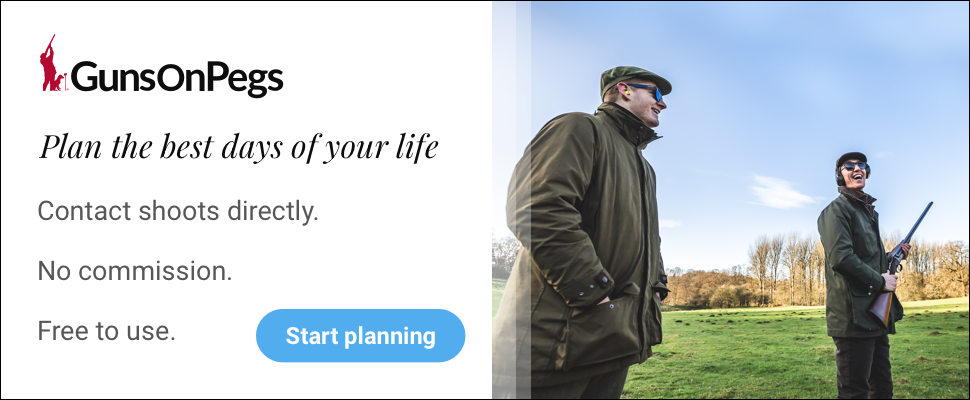The bird flu outbreak in the UK is tailing off, and prospects for wild birds are improving. Dominic Boulton, from Aim To Sustain, says there is reason for hope in 2023.
He says: “Throughout October, we were running at about 21 outbreaks a week on average. That dropped to 14 in November, and we’ve had four outbreaks this week and four outbreaks in the previous week. So, the rate of new infections is coming down, but we’re still not out of the woods yet.”
A game farm in Worcestershire, like many others, is trying to take no chances with bird flu. Staff wash boots and cover open pens with nets. It’s overwintering more than 100,000 pheasants.
Farmer Paul Jeavons is also president of the Game Farmers Association. Even though he has his own birds he still needed to buy eggs in 2022 for his game farm – and he was gazumped. He says the one good thing that came out of avian flu outbreak was being able to share the risk with customers. He says: “We got customers to buy their own eggs, so they knew how much they were paying from Spain and so they knew the costs. Then they could calculate into their shoot costs. But it was almost a perfect storm because there was gazumping and profiteering. We’re coming out of coronavirus, we had Brexit, we had the Ukrainian problems, so all our costs were unbelievable.”

Adam Gwillam, of the Hadley Game & Sporting Agency, runs three commercial shoots. He can only operate two this season as he couldn’t source partridge eggs or chicks. His business normally puts on 100 days in a season across the three shoots. This year it will be 55 days across two shoots.
Adam says that increases in bird prices has had an impact on his clients. He says: “Generally, we have managed to survive quite well. Shooting quality has been good and the numbers of birds have been good.”
He says the challenge is managing the pressure in certain areas where there have been outbreaks.

Aim to Sustain is advising shooting businesses to be cautiously optimistic for this year. Dominic says the world of shooting has learned lessons from the outbreak. He says: “We’ve come through a terrible outbreak. There’s been a huge impact on the sector, but we’ve survived. We’re still shooting and we’re looking forward to this year with cautious optimism.”
He says there have been improvements to the disease control measures that the government puts in place too. He says: “We’ve had some positive changes to the way the compensation scheme works. We’ve had changes to the definition of what constitutes poultry and what doesn’t. So, a lot of backyard [poultry] flocks now are being treated differently to how they were being treated a year ago.”

Paul’s pheasants’ eggs are incubated and hatched on site in their own hatchery. His farm also rears a similar number of partridges, all from chicks hatched in its own hatchery from eggs bought in from French suppliers.
Paul has already ordered 50% of next season’s partridge eggs from Spain to reduce the risk of being wholly dependent on France. He is optimistic for the 2023 season. Paul says: “We did planning a year ago. We thought that if we can’t rear any pheasants due to avian flu, we could perhaps just do partridges as they don’t seem so susceptible. We would probably do 30% less birds.
“If we only did partridges, we’ve got all the equipment we need. I’m very pleased at the moment there seems to be fewer cases of avian flu about, so we’re going to go for it and we are doing pheasants as well.”

Despite the challenges of bird flu in 2022, Dominic believes that the future will be better.
He says: “We are cautiously optimistic that vaccines will be a realistic possibility in the next few years. That situation was not the case 12 months ago, so we have reasons to be optimistic about the future.
“There’s no doubt that there is still the potential for us to have a few tough years ahead of us before we get to the point where vaccines are in everyday use.”
Paul says he is seeing less cases of bird flu locally. He says: “We’ve got bird flu in Worcester a few miles away. It doesn’t seem to spread any further.”
He says he’s confident about rearing birds as he believes the problems are likely to be in the autumn in wetland areas of thew UK.
Adam says it has been a challenging time for his shoots. He says: We’ve had a number of difficult years, first covid, then the covid recovery year, and then bird flu issues. It’s been difficult. But we are we’re very hopeful and determined to provide the best season yet.”
- Click here for the latest on bird flu and information on the current restrictions, see the link below.
- Find Paul’s farm at WorcsGameFarm.co.uk
- Details of Adam’s shoots are at HadleyGameandSporting.com






